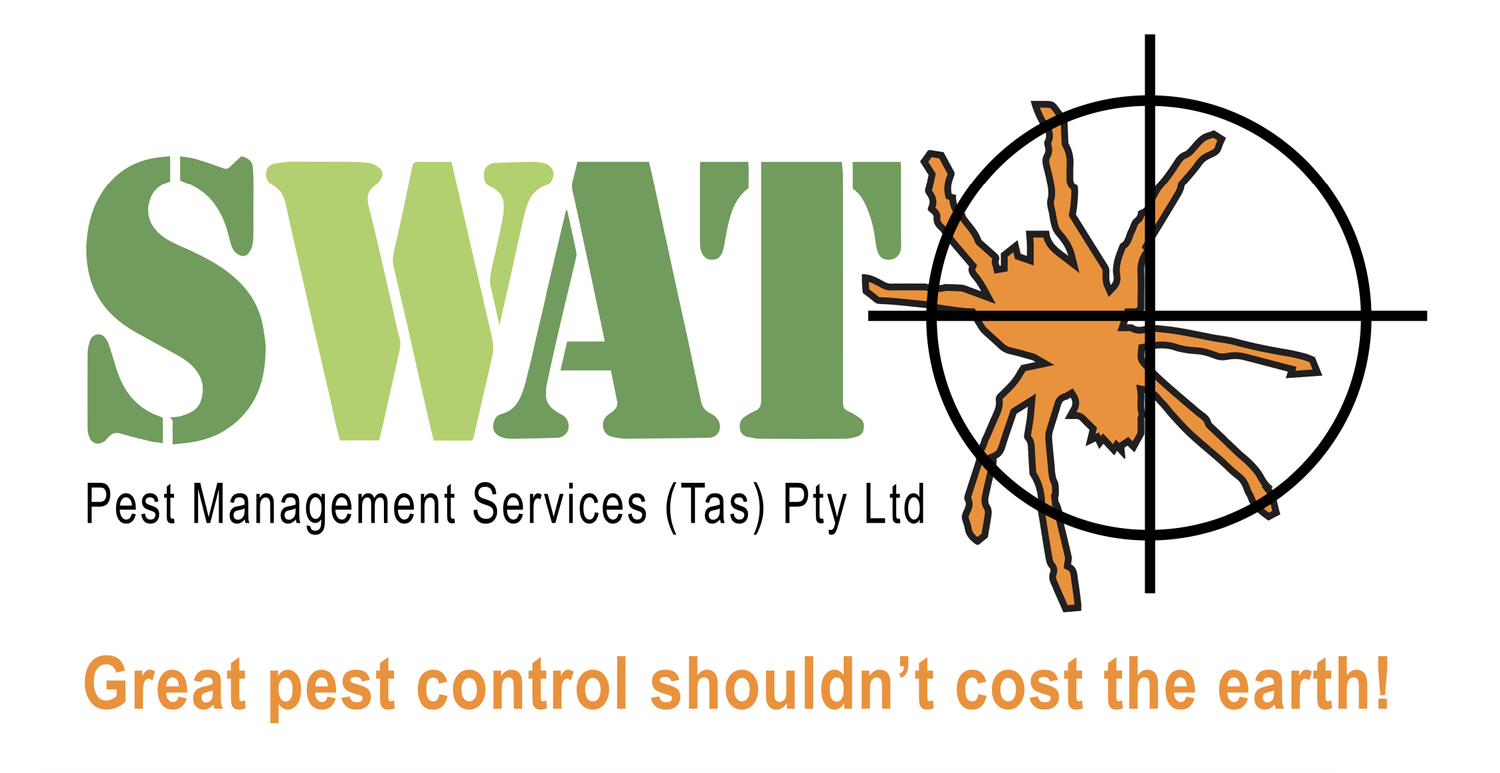
What does the service provide?
Our Pest Control Technicians can do a General Home Treatment which involves applying an enviro friendly pyrethroid product, to your ceiling, architraves, skirtings and a peripheral barrier around doors and windows. The technician will also treat other access points where Spiders, Flies, Mosquito’s & other insects access your home with Pyrethroid spray or powder. The technician will also treat the exterior of your home which includes all fences, your clotheslines and letterbox.
SWAT uses their special patented Safe Application Strategy making Pest Control even safer for you and your family. When insects contact the sprayed area they will die. See the Facts and After Treatment sections for more information.
This contact spray is the safest way to provide a long-lasting treatment for your home AND it is certainly far safer than any untested supermarket sprays that might be breathed in by your family!
SWAT may also use blower vacs and thermal foggers and misters to combat pests that live in wall cavities, roof spaces or other hard-to-reach places.
Common Pests
-
Signs of mouse infestation include droppings, gnawed plastic or furniture, tracks and rodent sightings. House mice also emit musky odors. These signs help homeowners to identify nesting areas. Mouse nests are made from shredded fibers and other found materials.
If you suspect you have mice, it is important to take action right away as they can cause a lot of damage to your home and spread several diseases.
SWAT Pest Management can treat rodents with a variety of strategies including Tamper-Proof bait boxes. Boxes can be refilled by the technician as required or maintained by the property owner.
-
While few spiders pose harm in the home, they can be a nuisance and some people have a genuine fear of arachnids whilst some have a genuine dislike for cobwebs.
The SWAT technician will identify where the spiders are entering the home and treat accordingly.
You will see an increase in activity for a few days, then after about a week wipe or broom away cobwebs.
-
Flies and mosquitos are the most uninvited guests like ants at a picnic.
Imagine celebrating a special occasion with an outdoor cookup only to have it ruined by annoying flying insects.You would prefer the memories of this occasion being the event itself and not your guests being bitten!
Talk to your SWAT technician about treatment options.
Whilst there are many natural fly and mosquito repellents which work in the interim, a consultant with your SWAT technician will help you identify a more long term solution to help stop these pests from spoiling your next outdoor event.
-
Not all ants are the same. Different ants live in different environments (e.g. garden, wall cavity, ceilings, pot plants etc.) and they prefer to eat different foods. For instance, some ants prefer sweet foods, others prefer meat. It is also important to understand that Pest Controllers cease the activity of one ant nest, but there is always the potential for a nest from next door to move in 6 months later. The fight to combat ants involves consistent vigilance.
Only a handful of the species found in Tasmania are nuisances in Tasmanian homes and gardens. However, some of the Myrmecia species (jack jumpers, jumpers, inchmen, bulldog ants, bull ants) can cause serious allergies, requiring urgent medical attention in some individuals.
The next best way to control an invasion of ants in the home is for a licenced Pest Control Technician to find and treat the nests.
-
The only effective way of controlling inchman or jumper ants is to treat their nests with a dust or sandy formulation of a registered insecticide. Because inchmen and jumper ants do not form trails, their nests may be hard to find. Look for them under fallen logs, stony areas, rock walls or in open ground where the vegetation is sparse. The entrance may be surrounded by pebbles in the case of jack jumpers. Like scorpions, they are more common in newly established gardens than in old suburbs. Regular soil disturbance reduces their numbers, just as happens in regularly cultivated paddocks.

